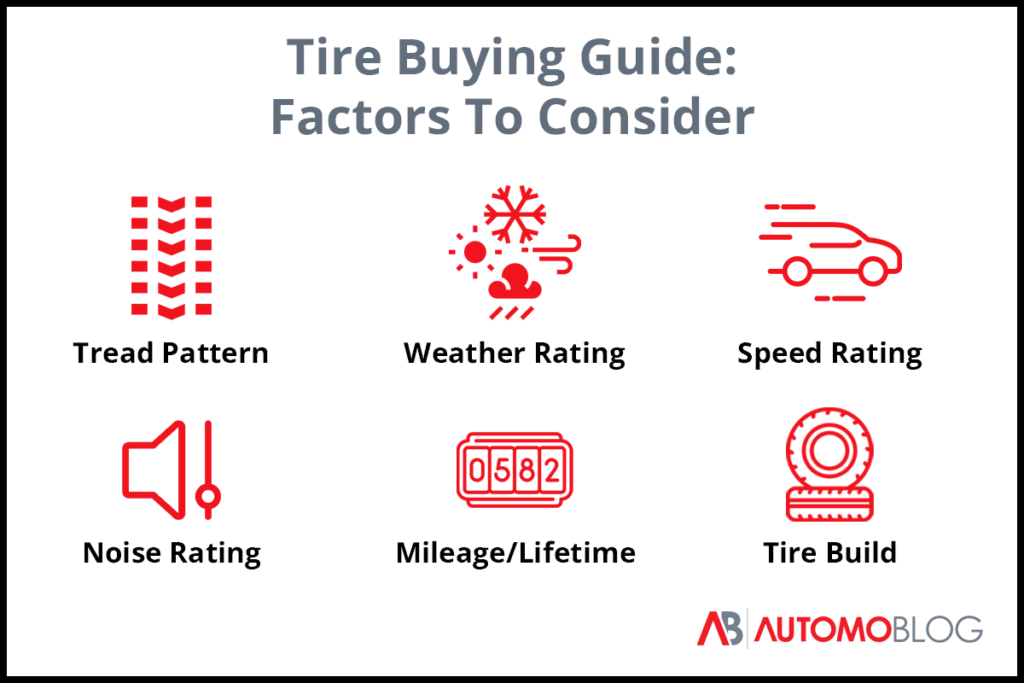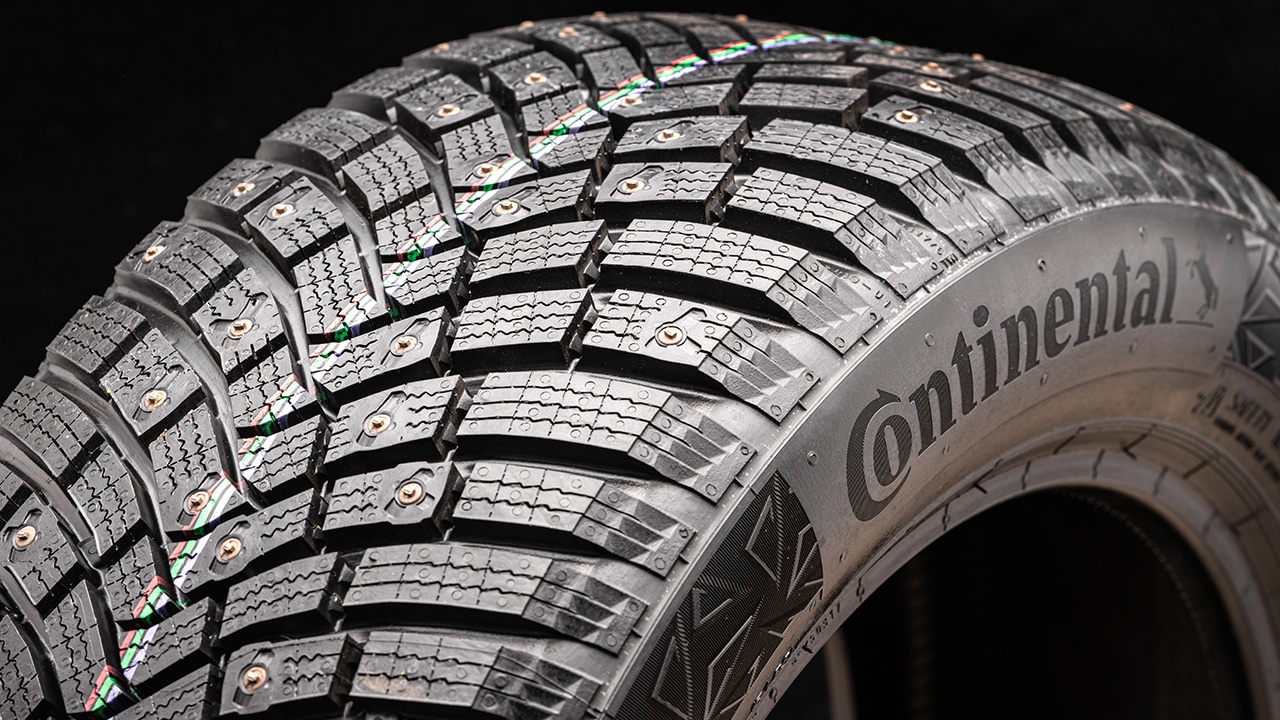Affiliate Disclosure: Automoblog and its partners may earn a commission when you use the services or tools provided on site. These commissions come to us at no additional cost to you. See our Privacy Policy to learn more.
- Continental earned an overall score of 4.0 out of 5.0 in our most recent tire study.
- While Continental tires have a strong reputation for quality, they are among the pricier brands in the industry.
- The company’s Total Confidence Plan offers several benefits and added tire coverage for an additional fee.

Continental is a well-established tire manufacturer. While Continental tires did not secure a top five spot in our best tires review, it did place in the top 10.
In this review, we’ll examine Continental tires in-depth, including industry ratings, popular models, costs, and more. We’ll also discuss two alternative tire brands to consider if Continental isn’t the right choice for you.
Continental Tires Overview
Founded in 1915, Continental is headquartered in Hanover, Germany. The brand is the fourth-largest tire manufacturer worldwide, accounting for 12.9 percent of global sales in 2018, according to Statista. It’s held in similar industry regard as Michelin and Goodyear, two top-tier manufacturers.
Though Continental is a German manufacturer, it also has a headquarters in North America located in Fort Mill, South Carolina. The company has a strong relationship with both luxury and daily-driver car manufacturers, making it a popular choice for original equipment (OE) tires. However, Continental also produces replacement tires, motorcycle tires, auto safety systems, some electronics, and powertrain parts.
Used by luxury brands like Audi, Tesla, and Porsche, Continental produces well-regarded performance, touring, and standard all-season tire models. The brand also has put years of testing and innovation into its tire’s stopping abilities and sustainability.
Continental Tires Cost
Based on our research, Continental tires can range from about $70 to $420 per tire, but more popular models skew upward. For example, a replacement Continental TrueContact Touring tire for a popular commuter car like the 2020 Toyota Camry Hybrid would cost just over $100.
Continental tires can be pricey, but they’re not as expensive as Michelin tires. And, at the end of the day, you get what you pay for. Many drivers find a higher price tag to be worth it after considering the company’s rigorous testing standards, quality materials, and tread life warranty.
Continental Industry Ratings
Continental tires, similar to other passenger tire manufacturers’ products, follow an evaluation system created by the National Highway Traffic Safety Administration (NHTSA). This system is called Uniform Tire Quality Grading (UTQG), and it rates tires – except specialized tires – based on their treadwear, traction, and temperature resistance.
Treadwear
This grade estimates the longevity of your tires. To calculate treadwear, tires are measured against a control tire given a rating of 100. If a tire has a 500 treadwear rating, that means it lasted five times longer than the control. Most passenger tires have between a 300 and 500 treadwear rating, according to data from SaferCar.gov.
Traction
This grade measures how well your tires “grip” a wet road. Traction grades are given on a scale of AA, A, B, or C. Good day-to-day passenger tires typically receive an A rating.
Temperature
This grade evaluates a tire’s heat resistance on a scale of A, B, or C. Tires need to withstand different temperatures based on their specialization. Performance tires, for example, usually move at much higher speeds than an all-season tire, and in turn, have higher temperature ratings.
It’s important to note that the NHTSA does not oversee UTQG tests. Manufacturers and independent companies hired by brands are responsible for tire testing and reporting.
Continental Tires UTQG Scores
Below, we listed a few highly rated Continental tire models and their treadwear, traction, and temperature scores using data from SaferCar.gov.
| Continental Tire Model | Tire Type | Treadwear Score | Traction Score | Temperature Resistance |
|---|---|---|---|---|
| Light truck/SUV All-terrain |
680 | A | A | |
| Passenger All-season Ultra-high performance |
560 | AA | A | |
| Passenger Standard touring All-season |
800 | A | A | |
| Crossover/SUV Touring All-season |
680 | A | B |
If you want to know more about a Continental tire you already own, you can check the tire’s sidewall for the UTQG grade.
Most Popular Continental Tires
Continental tires have been at the forefront of innovation, safety, and quality since the company’s founding in 1871. Though many of its tire models are popular, a few Continental tire models stand out among the rest.
Here are some of the brand’s most popular tires, based on Continental tire reviews and customer satisfaction ratings on Tire Rack:
- Continental TrueContact: A well-regarded all-season passenger tire that handles well in wet, dry, and snowy conditions
- Continental WinterContact Snow & Ice (SI): A cost-friendly studless winter tire made with PolarPlusTM technology
- Continental ExtremeContact DWS 06: An ultra-high performance tire made for sporty drives that still handles well in snow and slush
- Continental PureContact LS: A grand touring tire designed with Continental’s ComfortRide and EcoPlus technology, making it more comfortable, longer-lasting, and better suited for wet and dry roads
Each of these Continental tires received a 4.0-star rating or above on Tire Rack and has similarly high ratings on other retailers’ sites.
Continental Tires Buying Guide
Continental tires are among the best in the industry, but the wrong tire for your car or situation won’t offer optimal performance and safety – no matter how high-quality it is. When you shop for new tires, you’ll want to carefully consider your options, weighing both your needs and your preferences.
Continental Tires: Factors To Consider

There is more than just fit when it comes to finding the right tire for your vehicle. The following factors are what differentiate one tire from another and determine at each one is best suited for:
- Weather rating: While many tires are rated as “all-weather” tires, some have more specific or limited ratings. Some winter tires, for example, have studs or other features that make them ill-suited for driving in warmer weather.
- Tread pattern: Tires have different tread patterns that offer differences in the way tires “feel,” and how they handle situations like off-road driving, cornering, and more. The most common tread patterns are diagonal, symmetrical, asymmetrical, and combined patterns.
- Speed rating: Manufacturers rate their tires for their maximum safe speed. This is an important consideration especially if you are buying tires for high-performance vehicles and enjoy driving fast.
- Tire life: You’ll typically see the expected lifetime of a tire listed in terms of miles.
- Tire build: There are differences in the ways tires are constructed as well. Radial tires tend to be more durable overall, while bias tires tend to be more affordable and often have stiffer sidewalls.
- Noise rating: Some tires are designed to be quiet on the road and are significantly less noisy than those that aren’t. This may be an important factor for drivers who have long commutes or spend a lot of time driving.
How To Read Continental Tire Sizes
Continental and other tire companies use a format to describe tire sizes that may require some explaining. Using the common tire size of P225/65R17 as an example, here is what each letter and number represents:
- P: The first letter in the sequence describes the type of vehicle the tire is meant for. In this case, the “P” stands for passenger, meaning this tire is meant for a personal automobile.
- 225: The first number lists the width of the tire in millimeters. Therefore, you can tell that our example tire is 225 millimeters wide.
- 65: The number that follows the slash details the aspect ratio of the tire’s height compared to its width. In the case of our example, 65 means that the height of the tire is 65% of its width.
- R: The second letter in the sequence indicates the tire build, with “R” standing for radial in our example.
- 17: The final number in the sequence identifies the diameter of the wheel the tire fits. Our example tire, then, fits a 17-inch rim.
Continental Tire Warranty
Continental tire warranties are on par with competitors’ guarantees. The company offers a limited warranty for defective materials that lasts up to six years, which is standard.
Its longest tread life warranty spans up to 80,000 miles, which is on the high end for the industry. We also like Continental’s 60-day replacement guarantee if you’re not satisfied with the tires you purchase.
Continental Total Confidence Plan
While Continental tires come with a warranty, this warranty is limited to manufacturing and material defects. It doesn’t cover incidental damage to tires. However, you can purchase extra coverage with the Continental Total Confidence Plan. This offers additional coverage and benefits, including:
- Road hazard coverage: Replaces tires damaged by foreign objects and other road hazards for free within the first 12 months from the date of purchase.
- Limited warranty: Replaces tires if they become unserviceable within 12 months of purchase.
- Flat tire roadside assistance: Covers roadside tire repair and replacement and also provides up to 150 miles of free towing.
- Emergency trip interruption: Covers food, lodging, and other travel-related expenses if you suffer a mechanical breakdown on the road away from home.
Continental Customer Reviews
Cost, reputation, and industry ratings are important factors to consider when purchasing a tire, but customer reviews can give you a better picture of how Continental tires actually perform on the road.
Below, we’ve outlined both positive and negative customer reviews of Continental tires to give you a complete view of the brand’s quality. Overall, Continental tire reviews are positive, with most models receiving high satisfaction ratings from customers.
Positive Continental Tire Reviews
“[The Continental PureContact LS has] top-notch wet weather performance, [is] reasonably quiet, [and has] pretty good handling when dry. A class-leading tire, [it’s a] very safe and predictable tire across many conditions. One tire survived a pothole hit that was hard enough to bend the underlying steel rim without a blowout.”
– via Tire Rack
“[The Continental WinterContact SI is] an excellent winter tire, [with] great grip in both winter conditions and dry roads. Tire noise is slightly higher than the OE model, but nothing obnoxious like studded tires… Probably have two more winters left, so the wear is outstanding.”
– via Tire Rack
Negative Continental Tire Reviews
“[I’ve only driven this tire] 6,800 miles and it has 25% left (3/32nd). The [ContiSportContact 2] tires are the third brand I’ve had on this vehicle… I have a set of winter tires from Continental, which I really like, but I’ll pass on getting another set of these.”
– via Tire Rack
“[The Continental ContiTrac] came as OE on my 2017 Ford F-250 Super Duty. They were marginal even when they were new. Horrible wet weather performance, and I live in southern Alabama where we get an estimated average 70 inches of annual rainfall, so this is a huge disadvantage.”
– via Tire Rack
Continental Tires: Conclusion
In our 2021 best tires review, we ranked Continental tires seventh overall and gave it a 4.0 out of 5.0-star rating. Continental tires are an excellent option for all-season drivers and are notably safe in wet and dry conditions. The brand also offers a few reputable winter tires, which may be a good option for drivers looking for more affordability. However, Continental would not always be our first choice for some tire types.
Continental Tires: Recommended Competitors
While Continental produces high-quality all-season tires and winter tires, you may be looking for a different specialty model or price point. Other top-recommended brands in our best tires review include Michelin and Cooper.
Michelin: Best Overall
After reviewing every major brand in the industry, we determined Michelin to be the best overall tire company on the market today. As one of the largest manufacturers in the world, Michelin tires are almost synonymous with durability and quality.
Whether you need to fit your truck, SUV, crossover, or passenger car with a new set of tires, specialty or otherwise, you can count on Michelin to have an excellent selection. However, do know that Michelin tires tend to be more expensive than average.
Learn more in our review of Michelin tires, or compare rates for Michelin tires right away at TireRack.com.
Cooper: Most Affordable
If Continental tires are out of your price range, Cooper tires are a smart alternative. While the company doesn’t have the long-standing reputation of other tire brands, Cooper balances affordability and quality quite well.
The manufacturer specializes in producing replacement tires at much lower prices than the industry average. It also offers decent treadwear warranties, it’s longest hitting the 80,000-mile mark, which is not far off from Goodyear or Michelin.
Read more in our full Cooper tires review, or start shopping for Cooper tires at TireRack.com.
Continental Tires: FAQ
Is Continental a good tire brand?
Continental is a good tire brand in many aspects. It is one of the most well-regarded tire companies in the industry and has a strong reputation for quality.
Who are Continental tires made by?
Continental tires are made by the German manufacturing company Schaeffler Group. The company produces components for automotive, industrial, and aerospace applications.
Is Continental as good as Michelin?
Continental did not earn as good of a score in our tire study as Michelin. While Continental is an overall good tire brand, Michelin earned the highest score in our study.
Are Continental tires Chinese?
Continental tires are not Chinese-made. While the company produces its tires in Germany, it has gained a strong market share in China in recent years.
Our Methodology
Our research team is committed to providing the most accurate, thorough, and unbiased information possible to help people make informed decisions about the tires they purchase. We use a standardized set of criteria to ensure the consistency and comparability of our reviews.
- Industry Reputation: To assess the overall reliability of each company, we looked at industry ratings from organizations like the Better Business Bureau (BBB) and more, along with the company’s longevity and other factors.
- Tire Variety: Our team considered the full range of each manufacturer’s tire lineup, giving higher scores to companies that offered larger and more diverse selections.
- Affordability: Costs are an important consideration when buying tires. We evaluated the price range of each company’s products to determine its affordability relative to competitors.
- Customer Satisfaction: Our researchers scoured the internet for reviews from customers to assess how satisfied people are with their brand experience. We considered review scores as well as looked for consistent patterns of complaints or praise.


